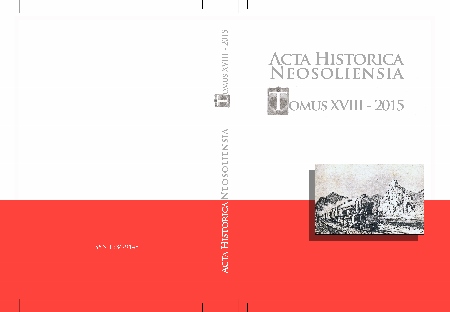
Nad prvou učebnicou československých dejín
Article compares two studentʼs books of history from years 1908 and 1921 with focus in history teaching in interwar Czechoslovakia.
More...We kindly inform you that, as long as the subject affiliation of our 300.000+ articles is in progress, you might get unsufficient or no results on your third level or second level search. In this case, please broaden your search criteria.

Article compares two studentʼs books of history from years 1908 and 1921 with focus in history teaching in interwar Czechoslovakia.
More...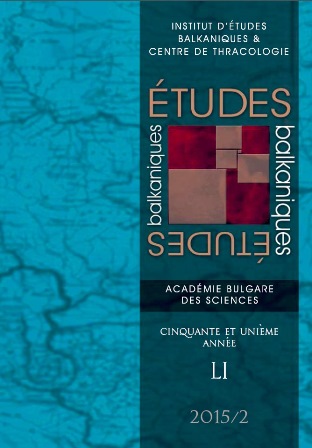
A very precious and useful handbook for economic and monetary historians of the Balkans.
More...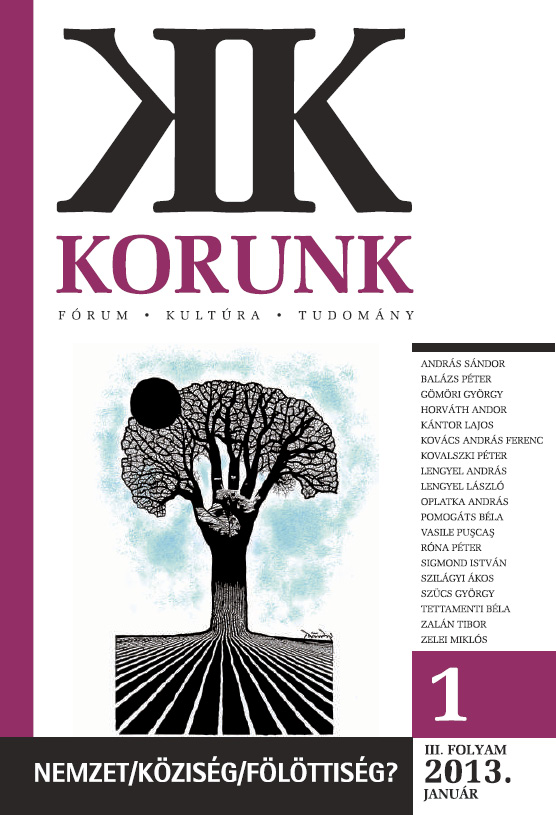
Az utóbbi néhány évtized történetelméletét, mint bármely más akadémiai tevékenysé- get, ambíciók fûtik. Ezek az ambíciók olykor elismerésre méltók, máskor inkább zavarbaejtõk, és értetlenséget szülnek, alkalmasint pedig egyszerre elismerésre méltók és zavarbaejtõk. A történetelmélet a legjobb pillanataiban korábban elképzelhetetlennek tûnõ meglátásokkal és gondolatébresztõ elméleti fejtegetésekkel szolgálhat a történetírói vállalkozás természetérõl, mindeközben azonban hajlamos egyfajta intellektuális dominancia megtestesüléseként tekinteni magára, és alkalmasint megpróbál befolyást gyakorolni a fejtegetései tárgyára, mondván, hogy a gondolatébresztõ elméleti fejtegetései képesek a történetírás gyakorlatának radikális átformálásá- ra – vagy hogy egyenesen éppen arra hivatottak.
More...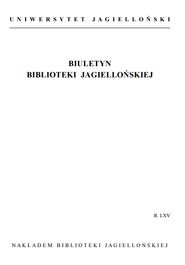
In the library of the Imperial-Royal Cracow Economic and Agricultural Society, whose humble beginnings originated in 1845, 1170 items were gathered until 1 January 1862. In detail, this collection consisted of 1826 volumes and 18 fascicles. The library was situated in the premises of the Society in Szewska street, 4. Thanks to acquisitions and donations, the collection proliferated, and the range of subjects of the items was not limited to topics strictly connected with agriculture. Despite the systematic increase in the number of members of the Society (in February 1862 there were 753 of them), the number of users of the library varied in the 1850s, and 1861 balance sheet showed only 19 persons who borrowed 109 items. This decline in the popularity of the library could have been caused by language barriers (as the major part of the books was written in German), as well as by the fact that it was less practical than agricultural exhibitions and seed sales in the office of the Society. Its activities, like those of the whole Society, were additionally undercut by the January Uprising, which began shortly afterwards.
More...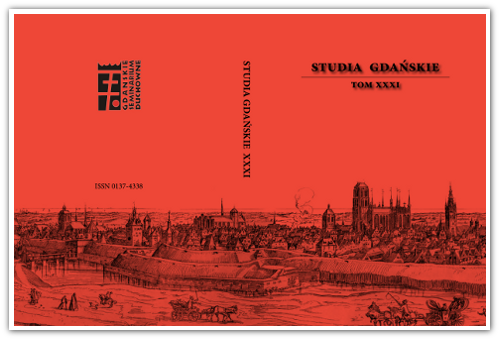
Do interesujących źródeł pozwalających odtworzyć funkcjonujący w danej epoce ideał, wzór czy model kapłana-duszpasterza należą dzieła z zakresu teologii pastoralnej. Podstawę źródłową artykułu stanowią wybrane opracowania wydane w języku polskim pochodzące z lat 1809‒1914. Ich analiza umożliwia uchwycenie wielu płaszczyzn życia duszpasterza, w tym szeregu aspektów życia codziennego, działalności duszpasterskiej, aktywności społecznej, a także kwestii związanych z relacjami państwo-Kościół. Wymogi stawiane wzorowemu duszpasterzowi były odzwierciedleniem uwarunkowań i potrzeb epoki, a nadto wyrazem koncepcji pastoralnej wyznawanej przez autorów badanych prac.
More...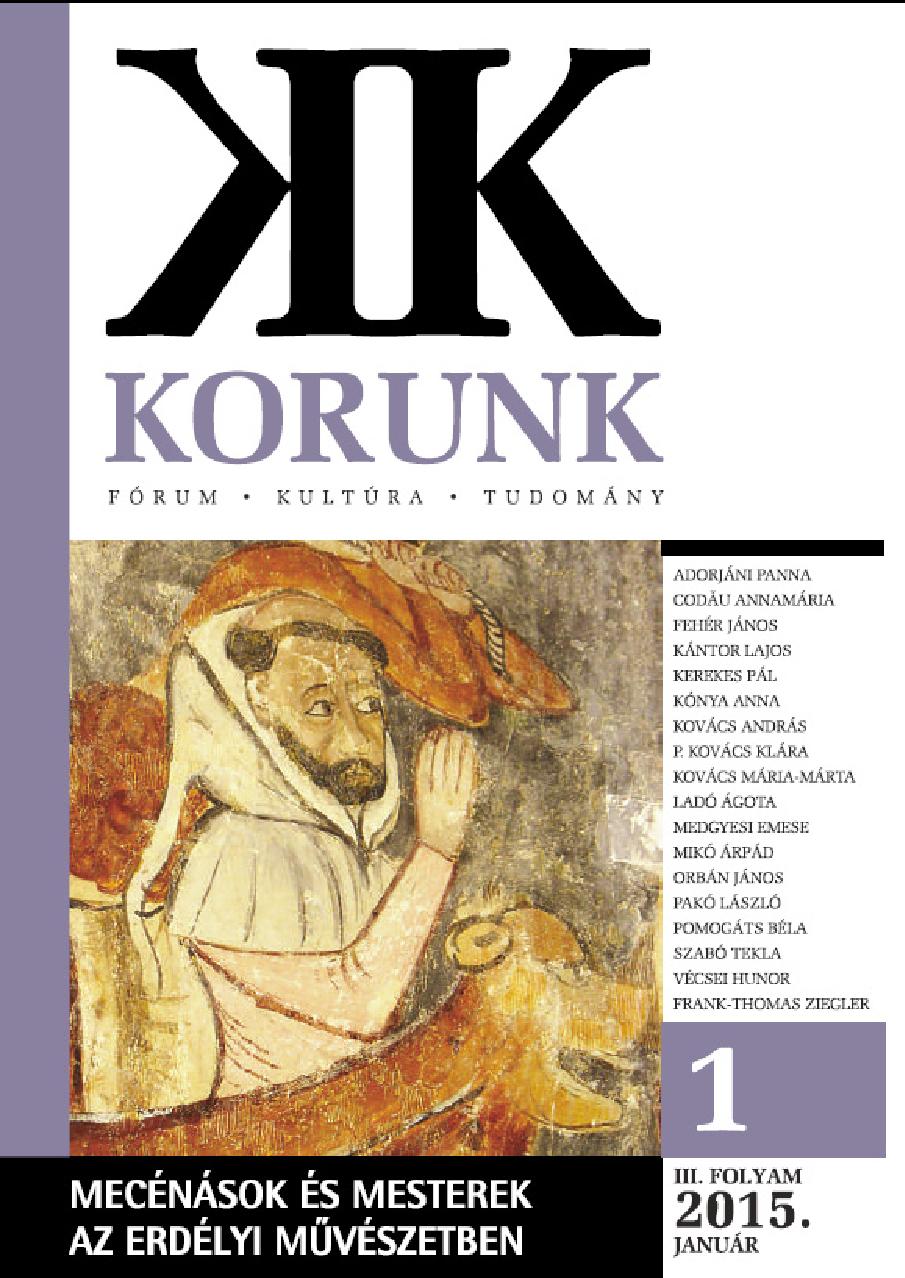
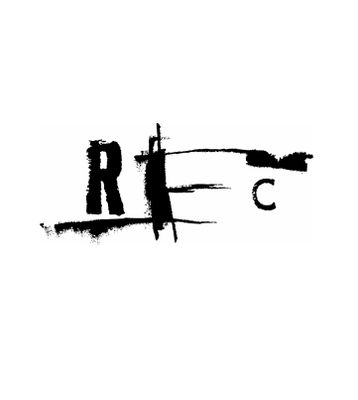
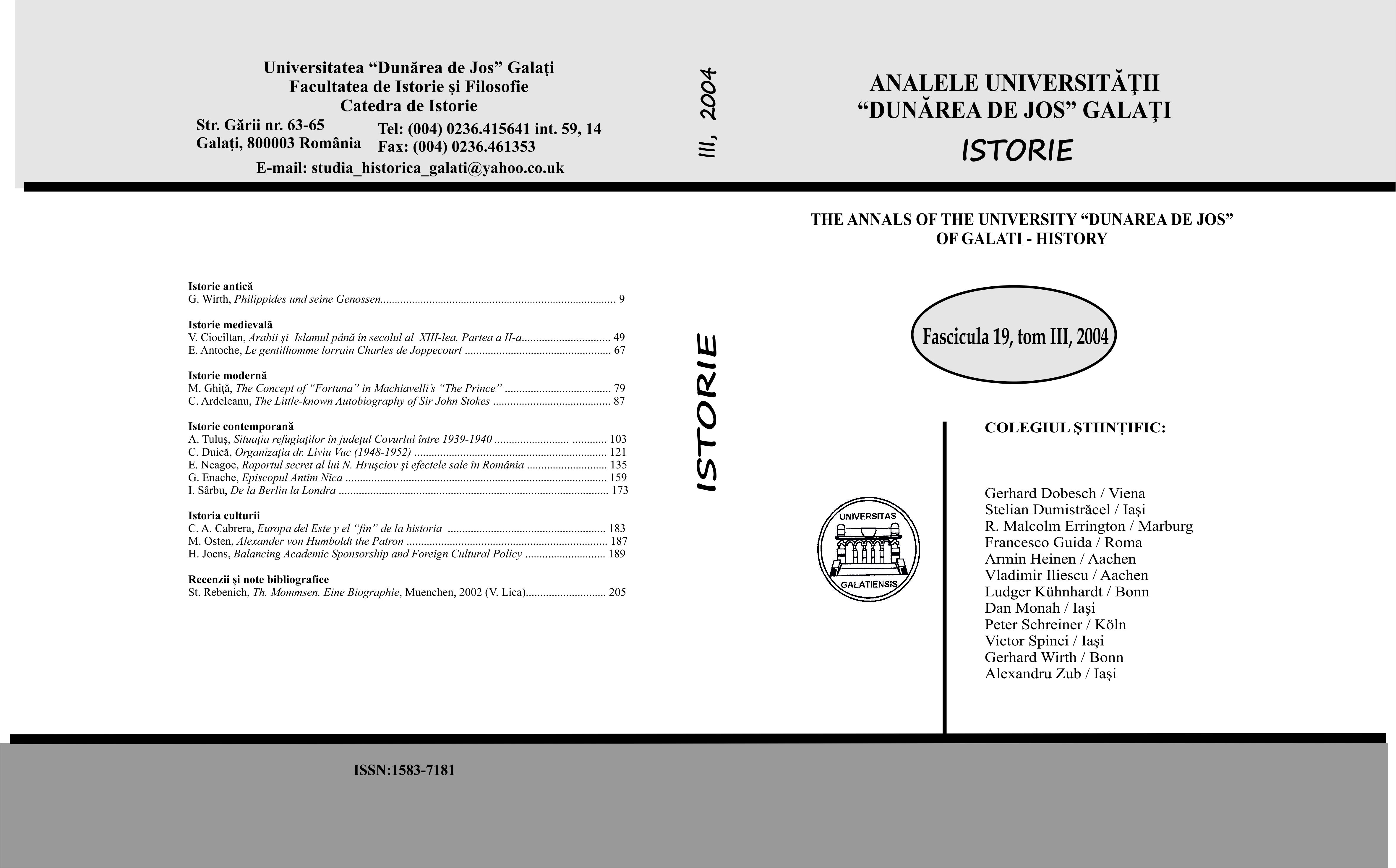
The present text recommends itself as an erudite essay regarding the condition of history and the historian on the threshold between the XXth and the XXIst centuries. In the postmodern times, the scientific “prophets” of the end announced the “end of history”, concomitantly with the end of other fields of the human studies. The multitude of the points of view, as well as the diversity of the reflections voiced and commented by the author, prove that history is nowadays more vivid than ever.
More...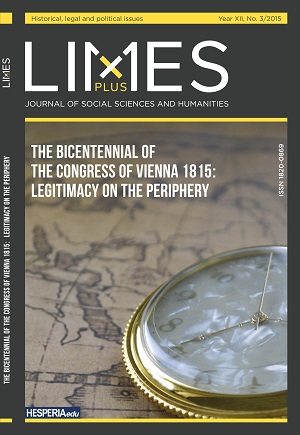
The Congress of Vienna and the Second Treaty of Paris marked not only the year of the final Napoleon defeat but the sealing of the European system that was supposed to last. The Ionian Islands were the British prey during the Fifth and the Sixth Coalition against Napoleon and, after the 1815, their status under British protectorate was established. The islands were a free and independent state under the immediate and exclusive protection of the British Crown. The Lord High Commissioner – the new Provveditore Generale appointed by the British Monarch, was to regulate the forms of the convocation of a Legislative Assembly. The result of that was a new Constitutional Charter of the States that had to be ratified by the British Crown. The situation at the Ionian Islands, which had changed already four administrative systems since 1797, was very unpromising with the civil war fought between different islanders’ sides. By the Treaty of 1815, the Ionian Islands were supposed to have far more control of the internal affairs but the situation on the ground was encouraging to the very rigid Constitutional Chapter of 1817. The consular dispatches that are the most important archival source show the fear of the anarchy. The experience of internal fights among islanders was important for understanding of the attitude of the Great Powers towards the Greek Revolution at its first stage in the early 1820s. Both Greeks of the Mainland and the islanders from the former Septinsular Republic (Repubblica Settinsulare) shared a lot of common experience in both governing and fighting since the last decade of the 18th century. In the years after the 1815 with the outbreak of the Greek Revolution, their cooperation and experience had an important role in changing of the Ottoman borders.
More...![Zdenko Samaržija: Review of the Book ’Историја апотекарства на тлу данашње Војводине’ [History of Pharmacy in Today’s Vojvodina] by Ilija Savkov, Novi Sad 2014](/api/image/getissuecoverimage?id=picture_2015_30223.jpg)
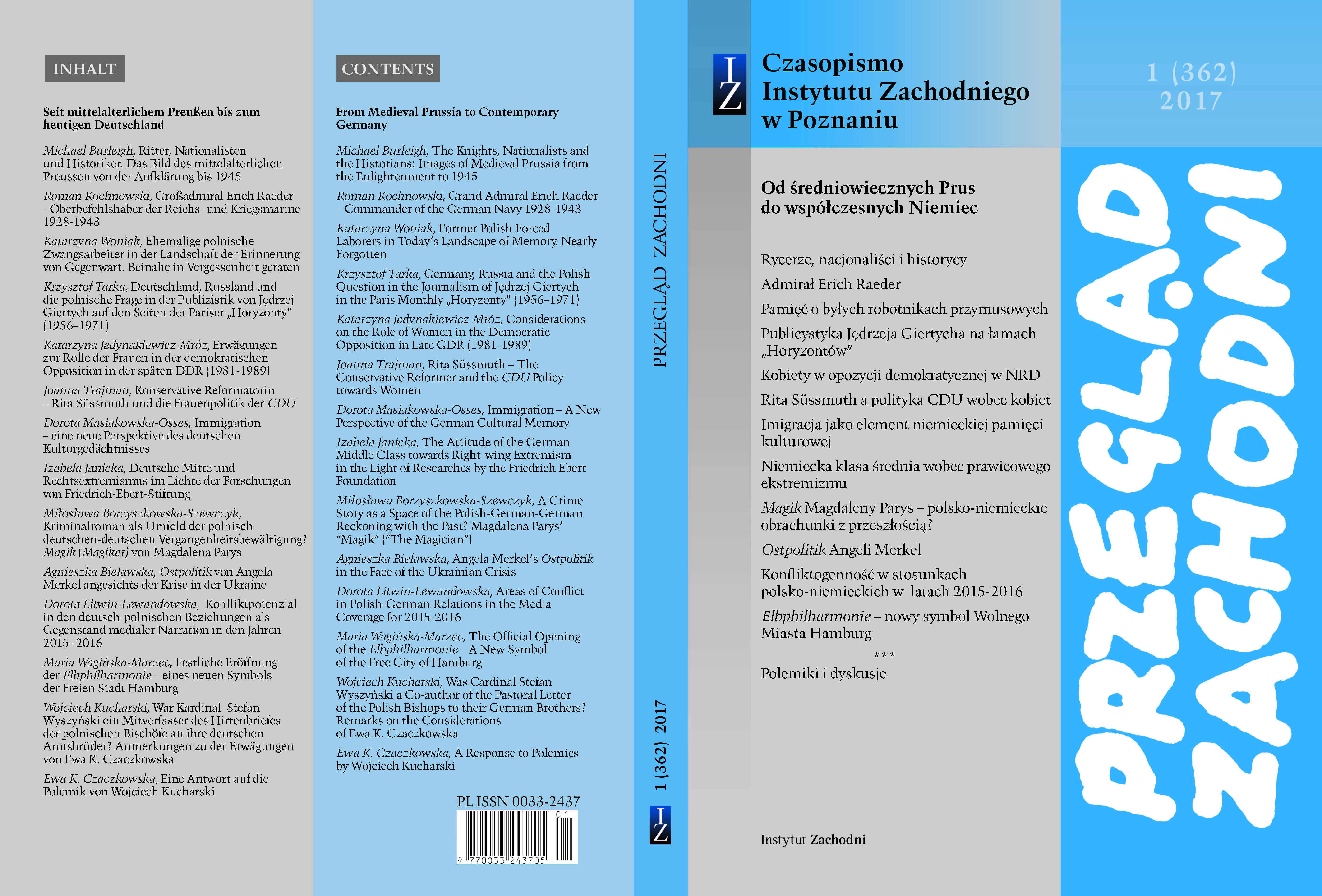
The history of the Teutonic Order has long inspired not only historians, but also poets, painters, journalists and filmmakers. In Germany, however, after 1945 the circle of those interested in the history of the Order diminished to a narrow group of professional medievalists whose names are obviously not commonly known. This decline in interest was observed both in Western and Eastern Germany. In Poland the situation was altogether different, as the authorities considered supporting the interest in the Teutonic Knights an element of a wider plan of steering social emotions, memory and awareness. At various times the history of the Order, or rather its symbolic version, was exploited to legitimize a range of very different political goals. In the article forwards the claim that the shape of the present largely determines the way of writing about the past. The article provides a compact review of the subject matter from the Enlightenment to the present times, highlighting several aspects of the “posthumous” ideological life of the Teutonic Order.
More...
Alsacia și Transilvania reprezintă două provincii istorice de frontieră, intens disputate de‑a lungul istoriei, care au fost mereu puse în legătură, atît în discursul politicienilor, cît și în cel al intelectualilor sau al istoricilor. Prin articolul nostru dorim să facem o pledoarie pentru o istorie comparată între Alsacia și Transilvania (ca două provincii de frontieră) și să aducem un prim set de argumente pentru această întreprindere științifică. Pornind de la avantajele și metodele de investigație ale istorie comparate, vom putea înțelege mai bine specificul identitar și modul în care aceste două provincii de margine s-au raportat la centrele lor de putere. În acest fel, istoria națională monolitică și exclusivă va fi înlocuită de o perspectivă fragmentară și/sau periferică, prin care vor ieși la lumină diferitele aspecte referitoare la: istoria locală sau regională, la regionalism sau la relația centru–periferie.
More...
Alsace and Transylvania are two historical border provinces which have been intensely debated throughout history and which have always been interrelated with each other in discourses of politicians as well as of intellectuals and of historians. By our study we would like to set forth a plea for a comparative history of Alsace and Transylvania (as two border provinces) and to yield a first set of arguments in favour of such a scientific endeavour. Once established the advantages and the methods upon which an inquiry of comparative history rests, we could better understand the particular identity and the ways in which these two sideline provinces have related to their centres of power. Thus the monolithic and exclusive national history may be replaced by a fragmentary and/or peripheral standpoint which would bring to light different aspects concerning local or regional history, regionalism or the relationship between the centre and its periphery.
More...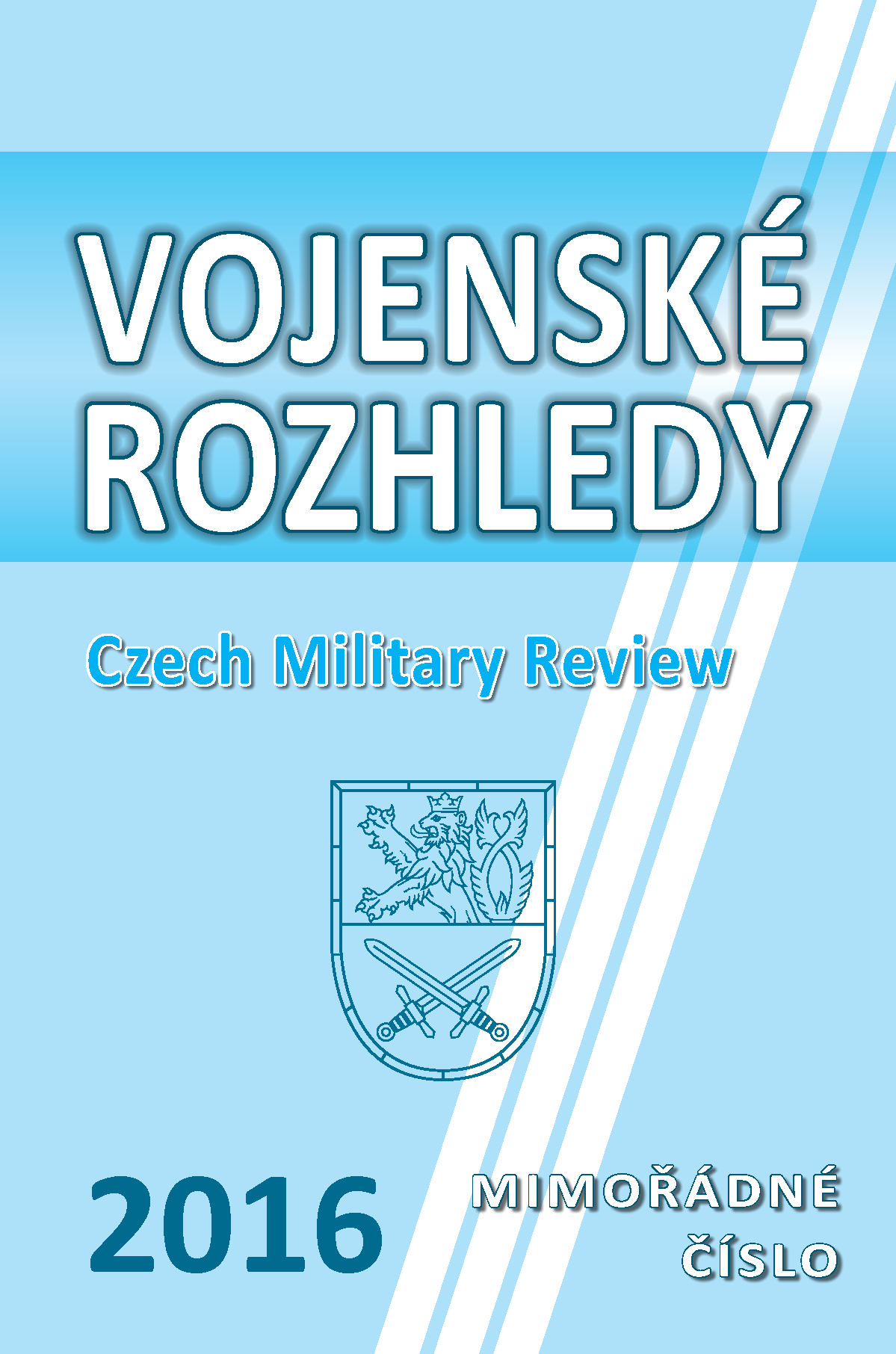
Despite the attempts of labeling hybrid warfare as a new form of warfareor even as a factor that is changing the nature of war, hybrid warfare ispart of a war from the Antiquity to the present day. The essence ofhybrid warfare is in parallel use of regular and irregular military forcesand different means of pressure by a power unwilling to openly attack aweaker opponent. Information dimension is analyzed in the cases ofhybrid warfare against Croatia (1990-91) and Ukraine (2014). In bothcases the key target of hybrid warfare was social cohesion of theattacked countries. In the Croatian case, despite a strong propagandacampaign followed by the direct and indirect use of military force, theattacking side was unable to break social cohesion of the majority ofCroatia's population. In the Ukrainian case, the lack of social cohesion hasprevented organization of the efficient response to hybrid warfarewaged by the Russian Federation. Both cases also indicate thesignificance of national identity in preserving a society's social cohesion.Despite the attempts of labeling hybrid warfare as a new form of warfare or even as a factor that is changing the nature of war, hybrid warfare is part of a war from the Antiquity to the present day. The essence of hybrid warfare is in parallel use of regular and irregular military forces and different means of pressure by a power unwilling to openly attack a weaker opponent. Information dimension is analyzed in the cases of hybrid warfare against Croatia (1990-91) and Ukraine (2014). In both cases the key target of hybrid warfare was social cohesion of the attacked countries. In the Croatian case, despite a strong propaganda campaign followed by the direct and indirect use of military force, the attacking side was unable to break social cohesion of the majority of Croatia's population. In the Ukrainian case, the lack of social cohesion has prevented organization of the efficient response to hybrid warfare waged by the Russian Federation. Both cases also indicate the significance of national identity in preserving a society's social cohesion.
More...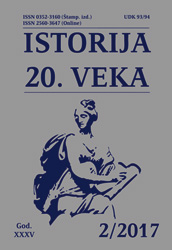
This article deals with a period of Serbian rule over the Northern Albanian districts (from November 1912 to April 1913). As Kingdom of Serbia was the only European country, beside Switzerland, with no territorial access to the open sea, one of its main war aims was the annexation of an outlet to the Southern Adriatic. Thus after the First Balkan War victory, Serbian army occupied some territories in Northern Albania which were not populated by ethnic Serbs, but were of utmost importance for the commercial and strategic reasons. In this article the colonial and imperial aspects of short-lived Serbian rule are examined and compared with the experience of colonial powers.
More...
This paper presents the idea sources, theory and criticism of conceptual history. Special attention is paid to its founder, German historian, Reinhart Koselleck. The paper discusses his thesis that pluralist history should be written from the viewpoint which is also plural and his reflective historicism close to constructivism and relativism. This paper also deals with criticisms of Koselleck. Despite these criticisms, conceptual history, as a scientific discipline, has inspired a linguistic shift in historical research, and emphasized the importance of hermeneutic research of meaning. Finally, it has efficiently summarized the past, and more or less reliably reduced the complexity of the past events.
More...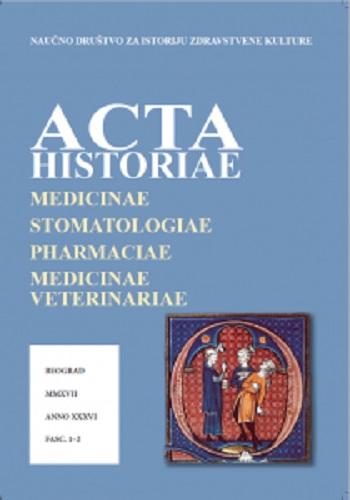
Cooperation between the state and metropolinate of Karlovci in overcoming various problems that affected Serbs in the 18th century was known throughout the century. It was visible in the process of building awareness on epidemics, for in those periods the Church tried, either on its own or stimulated by the State, to support measures in fighting epidemics. Although many serious problems were encountered in that process, the metropolitan Stefan Stratimirović (1790–1836) never failed to support all state attempts to improve health conditions and awareness of his congregation, and for that reason during epidemics he occasionally deviated from accepted practice of the church he was leading. He propagated vaccination against smallpox for children, actively participated in furnishing temporary hospitals in war times and in restraining spreading of cholera, the disease that with its death toll replaced plague epidemics. This paper indicates significance of metropolitan Stratimirović in health care education of Serbs.
More...
During Salazar’s Estado Novo, Portuguese health policies were a reflex of general policies of the dictatorial regime. The crisis during World War II and the 1958’s electoral storm, improved the development of the state’s health sector. However, in the mother and child healthcare field, the regime’s ideology was not consistent with its political practice. Ideologically, the Estado Novo assumed a natalist, conservative and catholic position, condemned abortion, contraception and the woman’s work outside the home. The Portuguese women, single or married, should be confined to domestic work. For moral and economic reasons, the regime defended home birth, in a minimalist conception of healthcare. Medically assisted births, in hospitals, were mainly provided to mothers for families of low income or problematic births. This self– proclaimed family defender, Salazar’s Estado Novo revealed a considerable disinterest and lack of investment in mother and child healthcare, evidenced by statistical and budgetary sources. Both the lack of interest and policies are, also, documented by the high child and maternal mortality rates, two of the highest European indicators at this level. In fact, the health sector was always depending on donations for charity and private organizations, although the regime proclaimed its focus on mother and child healthcare. These political options as well as the high mortality rates attest the misleading propaganda of a family defender regime. In the sixties, political, social and mentality changes, that occurred in Portugal, forced a more dominant position of the state in the health sector. However, the state’srole in mother and child healthcare sector remained poor. Mother and child healthcare still depending on private institutions, essentially from charity.
More...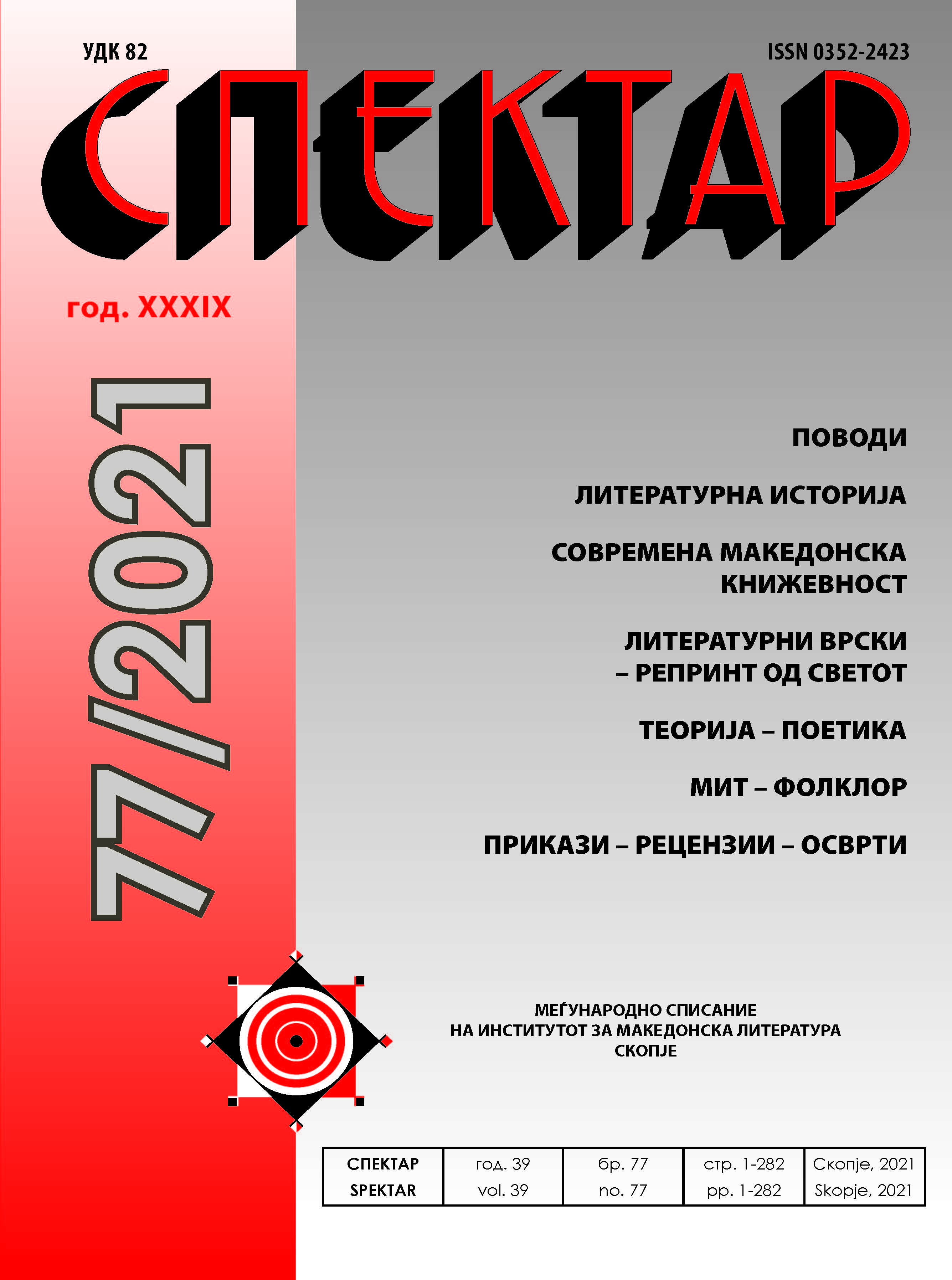
There are various theories for the genesis of the character of King Marko in our traditional epic poetry. The example of the typical cavalier hero of the Byzantine epic songs reveals many similarities with King Marko that indicates a possible immediate influence. As evidence in support of this hypothesis, this paper provides comparisons of several motifs that are present and elaborated similarly in both literatures: neglecting the horse and its preparation for fight, substitution of the horseman and the horse, crossing a river with a spear, etc.
More...